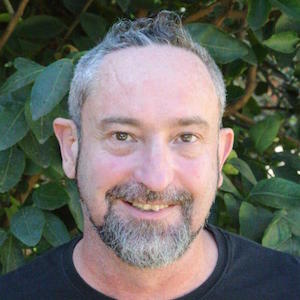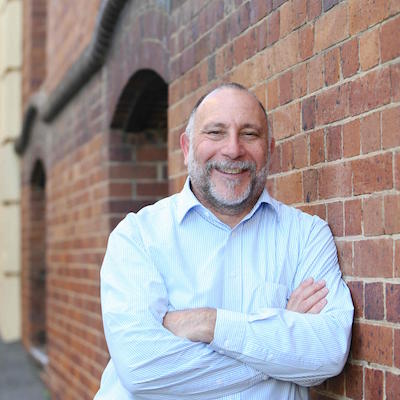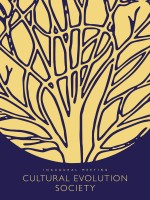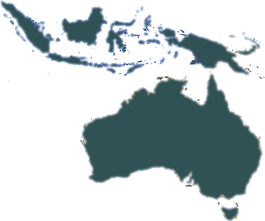1 October 2021 – Launch of the Aotearoa New Zealand Interoperability Lab
The Aotearoa NZ Interoperability Lab (ANZIL) is Aotearoa New Zealand’s contribution to the Asia eHealth Information Network (AeHIN) Community of Interoperability Labs (COIL). As part of our collaboration with AeHIN and the global OpenMRS Open Source community, S23M has sponsored and launched the Aotearoa NZ Interoperability Lab on 1 October 2021.
Our initial focus is interoperability based on HL7 FHIR (Fast Healthcare Interoperability Resources) and the IPS (International Patient Summary), building on the capabilities of S23M's Care Platform and OpenMRS, a best-of-breed Open Source electronic health record system that is used by more than 5,500 healthcare facilities in over 40 countries to provide improved healthcare to 12.6 million patients. Read more
4 December 2020 – DevOps, DevSecOps, and Security – where are we heading?
For many organisations – particularly organisations working with safety critical systems – the traditional DevOps practices have always needed to be adapted to much higher standards of security. Risk appetite differs between organisations. Unfortunately, as has been demonstrated for decades with software configuration management and DevOps tooling and development methods, people often almost religiously advocate for the systems they are most familiar with, rather than for systems that match the context of the organisation. Read more
1 December 2020 – Launch of the Human Factors subscription service
S23M has developed a service that provides clients with continuous access to our expertise in human factors and to our methodology for security and risk management.
Human Factors is a configuration of Creative Collaboration that focuses on the implications of human physical limits, the implications of human cognitive limits such as Dunbar’s number, and implications of fear (in particular lack of psychological safety) on collaboration, security and risk exposure. Read more
28 September 2020 – Community oriented and patient centred health service design at the AIDH Summit 2020
S23M Partner Jorn Bettin will be presenting on Community Oriented and Patient Centred Health Service Co-Design at the Digital Health Institute Summit in Australia on 5 November 2020. Mutual trust between patients and the network of care is a prerequisite for improvements in integrated and connected care. Patients, families, and local community service providers all have major roles to play in integrated health and care service delivery, and hence they should be key stakeholders in the co-design of such services. Read more
18 October 2018 – upcoming Health Informatics New Zealand workshop in Wellington
As part of the annual Health Informatics New Zealand conference, S23M is facilitating an Open Space workshop on Deploying trust building, thinking, and learning tools to create an inclusive culture of innovation and collaboration at Shed 6, Wellington, Wednesday, November 21st, 9:00am – 2:00pm.
A first topic suggestion has been submitted by Pete Chandler, COO, Bay of Plenty DHB: Establishing a sector wide multi-agency approach of collaboration to address workplace bullying in healthcare.
17 October 2018 – Agile Auckland
Jorn Bettin gave a talk entitled From collective insanity to organisational learning, by caring about the health of feedback loops at all levels of scale.
Please take the associated anonymous survey on organisational learning and creativity.
23 July 2018 – ProductTank Auckland Meetup
Jorn Bettin spoke at this event on the following topic: From project to product mindset and onwards to product platform architectures.
19 June 2018 – Auckland AI and Machine Learning Meetup
Jorn Bettin gave a talk entitled From artificially intelligent systems towards real thinking tools and human scale models that improve both human and machine learning.
16 June 2018 – CIIC Melbourne
Participants discussed the following topics:
- Short-cycle methods – Reflecting on the strength and resilience of modern short-cycle methods in research and solution design and development.
- Exploitation of autists at work – Organisations are using autism as an excuse to legitimise their approach of confining autists to specific roles and areas within the organisation. Along the way they reinforce stereotypes about what autists can or can’t possibly do.
- Supporting the Dandenong Mechanics' Institute with capital and skills – The Dandenong Mechanics’ Institute currently has several capital attainment programs in operation centred around a new development of small frame jet engines of simple and rugged modular design. The Institute has a need for supplementary skill investment.
View the full article on the results
9 June 2018 – CIIC Auckland
The theme for this event was human, non human and ecosystem health.
View the full article on the results
25 May 2018 – Techweek, New Zealand
In May 2018, as part of Techweek, a talk was given in Auckland, Wellington, Tauranga and Christchurch on the theme "Be good to the world". The talk was entitled From the busyness of innovation to the creation of lasting value.
15 May 2018 – Urbanism NZ conference, Wellington
Keith Duddy of S23M, and Simon Kaplan of Urban Institute co-wrote a presentation on Pattern-based thinking for inter-disciplinary approaches to urban design and infrastructure delivery for the inaugural Urbanism New Zealand conference in Wellington. Unfortunately Simon was unable to attend the conference, but Keith presented on their behalf.

|

|
| Keith Duddy | Simon Kaplan |
Urbanism New Zealand was well-attended, and was the first such gathering of urban planners, designers, developers and related stakeholders in New Zealand since 2007. The level of enthusiasm for collaboration and sharing ideas was high, and the chairs and panellists of the conference are working on a results and vision statement based on what emerged during the conference.
S23M and Urban Institute were pleased to represent a modelling and technology point of view amongst a community which is mostly focused on planning and design, and to learn more about the significant challenges facing cities and towns in New Zealand, and some of the innovative approaches used to solve them.
3 March 2018 – proceedings of the 11th quarterly CIIC unconference
The theme of this CIIC event was the intersection of healthcare and agriculture. Participants agreed to focus on the following three topics in order:
-
The externalities of intensive industrialised agriculture, and the roles of nutrition and urban agriculture in relation to human physical and mental health.
— Jorn Bettin, Pete Rive -
The opportunities and limitations of vertical farming and lab based agriculture, including the specific question of how we might improve the electrical efficiency of aquaponics and vertical farming systems.
— Ira Munn, Jorn Bettin -
How can New Zealand agriculture move from unbranded commodity food production to high value products that meet consumers' requirements for high quality ethical food products?
— Nic Lees

View the full article on the results
2 December 2017 – proceedings of the 10th quarterly CIIC unconference
A diverse and engaged group participated in the tenth CIIC unconference.
The workshop started with an introduction to the theme of trust building, which developed into an extended conversation about the detrimental effects of hierarchical structures, deception, and simplistic and distorted notions of intelligence.
Two working groups then focused on the following problem statements in parallel.
Problem 1: In what ways can seed-stage entrepreneurs with a sustainable, profitable business case draw capital-providing stakeholders, that understand first-mover advantages of risk and reward, to their endeavours? — Ira Munn

Problem 2: How do we cope with increased pressure on the public health system, model service level, measure service acuity, connectedness of health services within the health system at a hospital and northern regional level, patient flow, distribution cost, product cost and create an auditable cost to serve model? Benefits – efficiency in service level provided (all departments cannot be serviced at the same historical level), targeted outcomes, i.e. you would not service the emergency department at the same level as an admin block; and saving taxpayer dollars. — Amy J. Newkirk

View Jorn Bettin's slides on trust building (2.6 MB)
View the full article on the results
28 November 2017 – HiNZ conference videos available
The recorded presentations from the Health Informatics New Zealand Conferences in 2016 (Auckland) and 2017 (Rotorua) are now available:
- Enhancing Clinical Safety through Traceable Model Transformations (2017)
- Designing filtering, trust building, thinking, and learning tools for distributed high-performance teams (2017)
- Improving Interoperability between Healthcare Data Repositories (2016)
14 November 2017 – Talia Pua wins S23M Award
The 2017 winner of the S23M Award for trans-disciplinary practice is Talia Pua, who is currently in her first year of the Bachelor of Creative Technologies at AUT Colab. Over the course of the last semester she looked into several disciplines, to identify connections and experiment with conceptual blending. Her blog chronicles this journey.

Talia and her team's installation at the Colab showcase (entitled CON·TXT) illustrates how technology connects us yet disconnects us:


Here's a short highlight reel of the Colab Awards and Showcase event:
18 October 2017 – AUT Colab partnership
Last month S23M entered into a partnership with AUT Colab, the collaboratory for AUT's Faculty of Design and Creative Technologies. The agreement was signed by Jorn Bettin of S23M and Guy Littlefair of AUT Colab.

Professor Littlefair said that "this agreement with S23M is a ringing endorsement of Colab's ability to work with industry and a big opportunity for the whole faculty to gain knowledge of their innovation and interdisciplinary expertise".
S23M and Colab have agreed to:
- jointly develop learning resources and lectures related to innovation and entrepreneurship; interdisciplinary and transdisciplinary collaboration, research and design; co-creation; and product line engineering
- host and facilitate the quarterly CIIC unconference
- build on S23M's MODA + MODE methodology, to further research and develop S23M's Cell Platform technology, and to encourage open and widespread use of these tools according to the principles of open innovation, collaboration and knowledge sharing.
S23M intends to sponsor Master's and PhD students with an interest in one of the following areas of research:
- Visualisation of semantic artefacts on internet connected devices
- Tool assisted conversion of textual domain knowledge into formal models
- Unsupervised machine learning techniques that produce human understandable representations
16 September 2017 – CIIC Auckland
Lena Waizenegger provided the following problem statement, which was seen as an interesting way to explore the theme of "the essence of humanity", and to build on the results of previous workshops covering human scale computing:
My focus is on the interaction and collaboration processes of humans and intelligent machines. I want to investigate how work processes and work practices change when human employees and machines work collaboratively to fulfil specific tasks in the healthcare and construction sectors.
The participants noted that the machines fall into two main categories: cognitive assistants and robots. They then explored how collaboration takes place between agents (human and machine), and what factors influence the quality, trustworthiness of the collaboration and systems which support it.

View the full article on the results
15 September 2017 – Cultural Evolution Society Conference in Jena, Germany
The inaugural Cultural Evolution Society Conference (CES) took place on

Jorn Bettin and Xaver Wiesmann presented a poster entitled "Designing filtering, collaboration, thinking, and learning tools for the next 200 years", which is related to the MODA + MODE methodology for transdisciplinary research, design, and engineering.
View the poster, accompanying slides, and additional reference material
3 June 2017 – CIIC Auckland
This unconference event focused on human scale computing, which is the adaptation of the cognitive load generated by technology to human cognitive limits.

The objective of human scale computing is to improve communication and collaboration:
- between humans,
- between humans and software systems,
- and between software systems.
View the full article on the results
18 March 2017 – CIIC Melbourne
The first CIIC workshop in Melbourne brought together a group of 14 highly motivated participants around the theme of neurodiversity.

The following topics were discussed:
- The support system needed to nurture divergent thinking in the context of collaboration within organisations and between organisations
- Individual behavioural patterns within the social context in typical work environments
- The obstacles that stand in the way of collaboration across organisational boundaries
View the full article on the results
26 January 2017 – CIIC-off Melbourne
The "CIIC-off" event in Melbourne at the Knowledge Management Leadership Forum at RMIT was very enjoyable.

The themes of neurodiversity and creativity led participants to ask a number of interesting questions that were explored in-depth at the inaugural CIIC Melbourne workshop at RMIT on 18 March 2017, which was facilitated by Helen Palmer.
3 December 2016 – Neurodiversity – The Core of Creativity at CIIC Auckland
At this event, Peter de Vocht gave a demonstration of the semantic search technology he is developing for use in managing information overload. Jorn Bettin presented a keynote (slides) on the relationship between neurodiversity and creativity, the impact of widespread discrimination against people with autistic traits in the workplace, and on the need for radical autistic activism.

Participants then compared two fundamentally different approaches to knowledge sharing and knowledge extraction. The discussion was interwoven with further discussion of neurodiversity and the role of different cognitive lenses in shaping the motivations behind humans communication, as well as the preferred forms of expression and interaction.
View the results of the CIIC unconference
3 September 2016 – The Future of Zero Marginal Cost at CIIC Auckland
Dr. Pete Rive, one of the founding members of the Colab Industry Advisory group at AUT university, presented a keynote talk at the CIIC unconference on 3 September 2016 about the implications of zero marginal cost on the future of human societies.

Participants focused on the following problem statement submitted by Seyedjamal Zolhavarieh:
In the domains of health informatics and clinical decision support systems there is a lack of quality assessment of extracted knowledge for clinical decision making. There are two questions:
View the results of the CIIC unconference
5 March 2016 – CIIC Auckland
The unconference started off with a great keynote (view slides) by Vlatka Hlupic on The Management Shift.
The audience related in particular to the core message
People + Purpose = Performance
which framed the subsequent discussion of the core challenges within the healthcare sector in New Zealand.
CIIC participants decided to focus on two healthcare related problem statements:
- Design and development of tools for effective self-care
- How do we mobilise and align NZ’s policy, research, healthcare and commercial capabilities to deliver world-leading health outcomes, generate substantial economic returns, and attract, develop and retain talent? (First step: simplify problem statement.)
View the full article on the results
5 December 2015 – CIIC Auckland
Participants decided to explore the problem statement submitted by Stephen Marsland:
Is there a place for barter?
It seems likely that money, and hence financial systems, arose from bartering. How did this happen, how did bartering arise in the first place, and what does it tell us about the modern world/what can we use it for?

View the full article on the results
26 September 2015 – CIIC Auckland
Participants decided to pick up the thread from the last CIIC unconference around the following two related questions:
- How do we need to redefine economic progress?
- What is value?
Participants agreed that on the one hand values systems are highly personal and may vary significantly from individual to individual, and that on the other hand the social and cultural factors identified by Alan (philosophy, psychology, religion, politics, economics, engineering) have a significant influence.

Jorn Bettin used the domain of sailing to illustrate how an over-simplified language and a one-dimensional measure for progress can lead to a highly distorted “understanding” of a complex system, which prevents any real progress from the perspectives of the agents within the system.
The group searched for a small set of universal values with the potential to transcend the values generated by differences in cultural context. The result is a draft set of universal values that should prove useful in evaluating concrete opportunities for interdisciplinary innovation in future CIIC unconferences.
View the full article on the results
12 October 2015 – Career opportunities at S23M
Our company is growing. We build S23M around the skills, talents, and passions of the people within our team. The breadth and depth of our service offering are a direct reflection of the diversity and the capability within our team.

We are looking for talented professionals with expertise in one or more of our focus areas:
- Innovation & New Product Development
- Product Line Engineering
- Operational Excellence
- Enterprise Software as a Service
If you are ready to put your talents and passion to work in a collaborative high performance team, we would love to hear from you!
16 June 2015 – CIIC Auckland
The participants of the CIIC-off event on 16 June 2015 decided to tackle five of the submitted problem statements by working in parallel in two working groups, and sharing intermediate results along the way. The discussions in both groups delivered the following raw results, which will be documented in more detail by the owners of the submitted problem statements:
Working group A
Topics:
- What opportunities are there for collaboration between companies in building understanding of how to make progress towards sustainable supply chains?
- New Zealand’s contribution to a sustainable world. Many of our exports are associated with our clean green image. Yet our clean performance data shows we’re behind much of Europe, and falling behind. The demand for energy efficient living just isn’t there, especially in transport and housing. Rather than relying on policies, how can industries change this?
Working group B
Topics:
- Considering that Deming's deadly diseases of management are alive and well, how do we need to redefine economic progress so that the core of the definition still makes sense to those who will live 200 years from now?
- How do we blend human interaction and discretion within increasingly automated business processes? On a regular basis, we hear of serious “business process” failures … failures in the process of issuing consents (Christchurch City Council) … in privacy (WINZ) … in health … in justice … too many to list … and on a regular basis.
- What priorities are required for developing Embryonic Industries/SMEs, so that their potential can be advanced and their benefits can be realised within a small economic country like New Zealand? What needs to change to meet the increasing demands in a fast changing global market?
CIIC-off slides
A basic language for economic activity
The presentation also includes a few background slides on economic agents, purpose, and learning, and additional thoughts on a useful definition of economic progress. Food for further open space collaboration.
View the full article on the results
11 March 2015 – Conference on Interdisciplinary Innovation and Collaboration
Call for participation: CIIC, Auckland, 16 June 2015
S23M invites innovators and R&D professionals to contribute to the first conference on transdisciplinary innovation and collaboration that takes place in Auckland, New Zealand.
Background:
In order to be successful on the world stage, and to address the social, economic, and environmental challenges that lie ahead, researchers and innovators must create and nurture a collaborative culture that encourages diversification, and that bridges organisational boundaries and traditional research silos.
To nurture such a collaborative culture, and to catalyse transdisciplinary innovation, the Business School of the University of Auckland and S23M have joined forces, and have decided to co-sponsor a quarterly unconference event that brings together academic researchers and practitioners working in the private sector, in particular research and development staff, heads of product development, and individual innovators.
Science without innovation neglects opportunities and innovation without science remains shallow and superficial... Diverse knowledge is necessary to solve various problems in the world and to create value in the future, and overcome challenges that go beyond the framework of research in industry, government and academia.
from the mission of the Honda Research Institute
14 June 2013 – Benchmark the talent distribution in your organisation
What is the correlation between official job titles and personal strengths in your organisation?
The key personal attributes and skills needed to succeed in a specific role can vary significantly between industry sectors. For example:
- The role of a manager in a logistics organisation differs from the typical role of a manager in an insurance company.
- The role of a solution architect in a government organisation is quite different from the role of a solution architect in a software vendor organisation.
To shed some light on this topic, S23M is conducting an anonymous three-question survey on the relationship between personal strengths and job roles. The results will be of particular interest to organisations that operate complex supply chains and to organisations that develop software intensive products.
The survey has the potential to deliver valuable insights into the core talents and personal attributes that are responsible for the current and future success of your organisation.
Click here to access the survey. You can also use this template as a starting point for a tailored message to your team.
Please contact us in case there is a need for assistance in communicating the intent of the survey, or a need for tailoring the survey to the specific needs of your organisation.

















